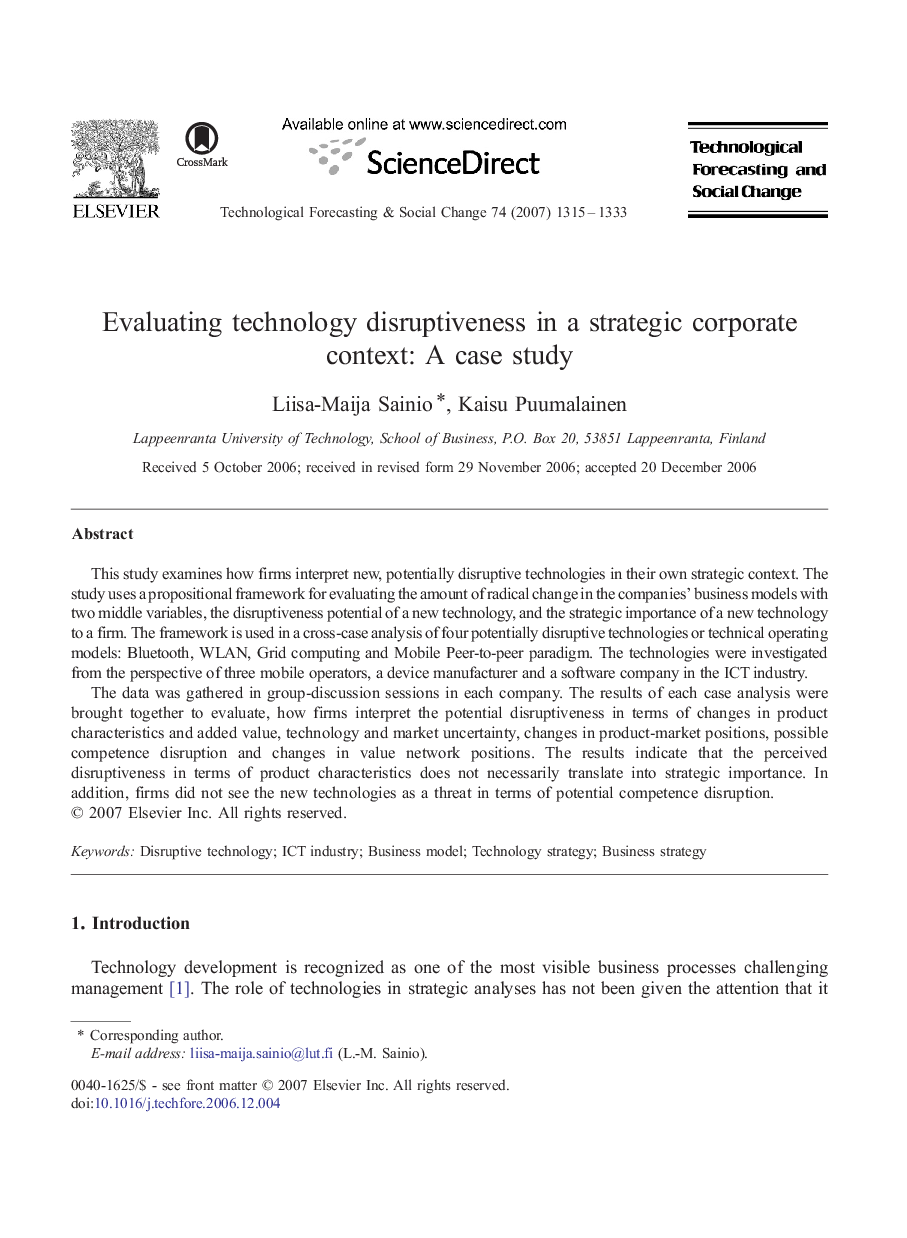| Article ID | Journal | Published Year | Pages | File Type |
|---|---|---|---|---|
| 897325 | Technological Forecasting and Social Change | 2007 | 19 Pages |
This study examines how firms interpret new, potentially disruptive technologies in their own strategic context. The study uses a propositional framework for evaluating the amount of radical change in the companies' business models with two middle variables, the disruptiveness potential of a new technology, and the strategic importance of a new technology to a firm. The framework is used in a cross-case analysis of four potentially disruptive technologies or technical operating models: Bluetooth, WLAN, Grid computing and Mobile Peer-to-peer paradigm. The technologies were investigated from the perspective of three mobile operators, a device manufacturer and a software company in the ICT industry.The data was gathered in group-discussion sessions in each company. The results of each case analysis were brought together to evaluate, how firms interpret the potential disruptiveness in terms of changes in product characteristics and added value, technology and market uncertainty, changes in product-market positions, possible competence disruption and changes in value network positions. The results indicate that the perceived disruptiveness in terms of product characteristics does not necessarily translate into strategic importance. In addition, firms did not see the new technologies as a threat in terms of potential competence disruption.
